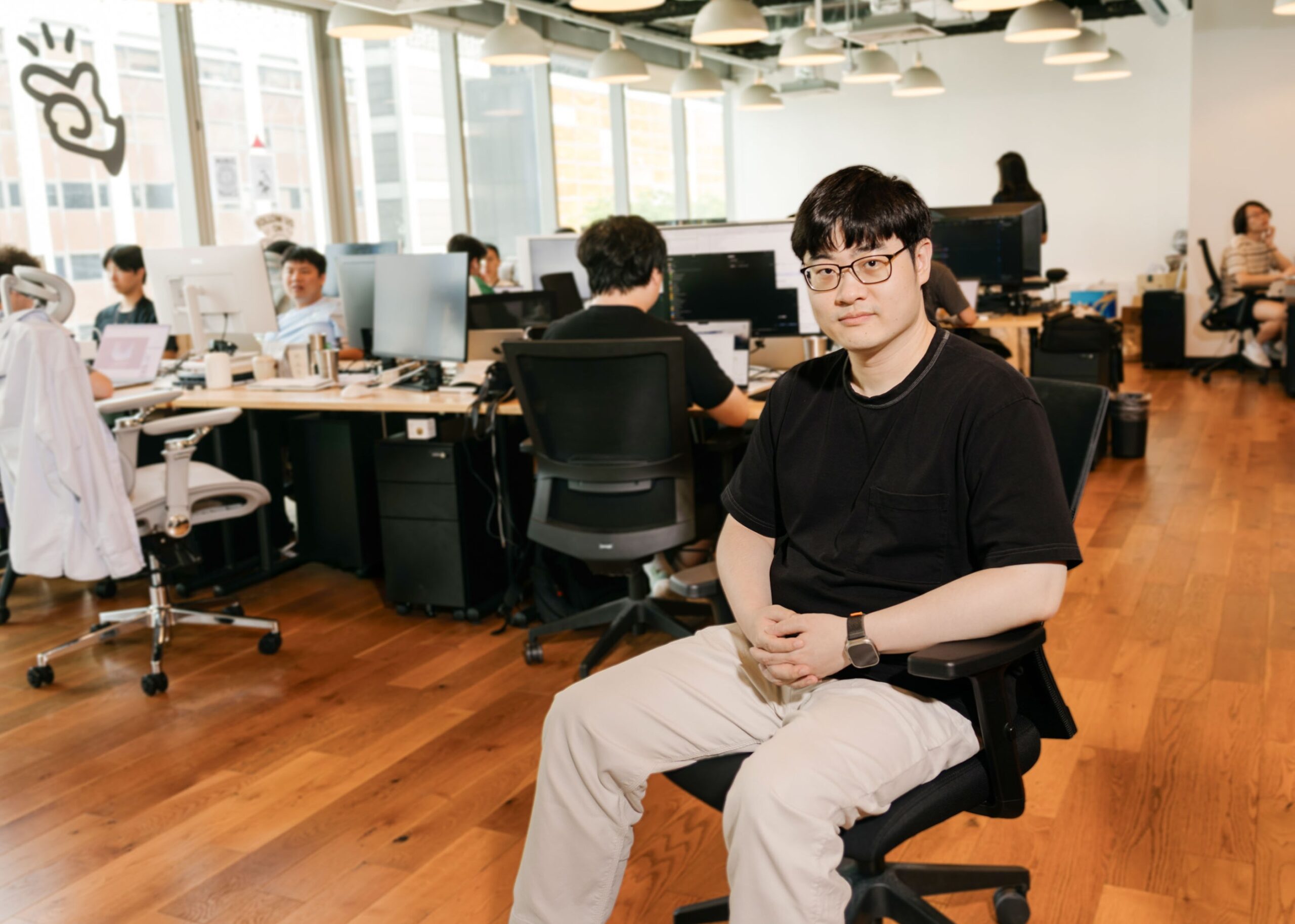How Yichao “Peak” Ji became a global AI app hitmaker
Yichao “Peak” Ji is one of MIT Technology Review’s 2025 Innovators Under 35. Meet the rest of this year’s honorees.
When Yichao Ji—also known as “Peak”—appeared in a launch video for Manus in March, he didn’t expect it to go viral. Speaking in fluent English, the 32-year-old introduced the AI agent built by Chinese startup Butterfly Effect, where he serves as chief scientist.
The video was not an elaborate production—it was directed by cofounder Zhang Tao and filmed in a corner of their Beijing office. But something about Ji’s delivery, and the vision behind the product, cut through the noise. The product, then still an early preview available only through invite codes, spread across the Chinese internet to the world in a matter of days. Within a week of its debut, Manus had attracted a waiting list of around 2 million people.
At first sight, Manus works like most chatbots: Users can ask it questions in a chat window. However, besides providing answers, it can also carry out tasks (for example, finding an apartment that meets specified criteria within a certain budget). It does this by breaking tasks down into steps, then using a cloud-based virtual machine equipped with a browser and other tools to execute them—perusing websites, filling in forms, and so on.
Ji is the technical core of the team. Now based in Singapore, he leads product and infrastructure development as the company pushes forward with its global expansion.
Despite his relative youth, Ji has over a decade of experience building products that merge technical complexity with real-world usability. That earned him credibility among both engineers and investors—and put him at the forefront of a rising class of Chinese technologists with AI products and global ambitions.
Serial builder
The son of a professor and an IT professional, Ji moved to Boulder, Colorado, at age four for his father’s visiting scholar post, returning to Beijing in second grade.
His fluent English set him apart early on, but it was an elementary school robotics team that sparked his interest in programming. By high school, he was running the computer club, teaching himself how to build operating systems, and drawing inspiration from Bill Gates, Linux, and open-source culture. He describes himself as a lifelong Apple devotee, and it was Apple’s launch of the App Store in 2008 that ignited his passion for development.
In 2010, as a high school sophomore, Ji created the Mammoth browser, a customizable third-party iPhone browser. It quickly became the most-downloaded third-party browser developed by an individual in China and earned him the Macworld Asia Grand Prize in 2011. International tech site AppAdvice called it a product that “redefined the way you browse the internet.” At age 20, he was on the cover of Forbes magazine and made its “30 Under 30” list.
Meet the rest of this year’s
Innovators Under 35.
During his teenage years, Ji developed several other iOS apps, including a budgeting tool designed for Hasbro’s Monopoly game, which sold well—until it attracted a legal notice for using the trademarked name. But Ji wasn’t put off a career in tech by that early brush with a multinational legal team. If anything, he says, it sharpened his instincts for both product and risk.
In 2012, Ji launched his own company, Peak Labs, and later led the development of Magi, a search engine. The tool extracted information from across the web to answer queries—conceptually similar to today’s AI-powered search, but powered by a custom language model.
Magi was briefly popular, drawing millions of users in its first month, but consumer adoption didn’t stick. It did, however, attract enterprise interest, and Ji adapted it for B2B use, before selling it in 2022.
AI acumen
Manus would become his next act—and a more ambitious one. His cofounders, Zhang Tao and Xiao Hong, complement Ji’s technical core with product know-how, storytelling, and organizational savvy. Both Xiao and Ji are serial entrepreneurs who have been backed by venture capital firm ZhenFund multiple times. Together, they represent the kind of long-term collaboration and international ambition that increasingly defines China’s next wave of entrepreneurs.

People who have worked with Ji describe him as a clear thinker, a fast talker, and a tireless, deeply committed builder who thinks in systems, products, and user flows. He represents a new generation of Chinese technologists: equally at home coding or in pitch meetings, fluent in both building and branding. He’s also a product of open-source culture, and remains an active contributor whose projects regularly garner attention—and GitHub stars—across developer communities.
With new funding led by US venture capital firm Benchmark, Ji and his team are taking Manus to the wider world, relocating operations outside of China, to Singapore, and actively targeting consumers around the world. The product is built on US-based infrastructure, drawing on technologies like Claude Sonnet, Microsoft Azure, and open-source tools such as Browser Use. It’s a distinctly global setup: an AI agent developed by a Chinese team, powered by Western platforms, and designed for international users. That isn’t incidental; it reflects the more fluid nature of AI entrepreneurship today, where talent, infrastructure, and ambition move across borders just as quickly as the technology itself.
For Ji, the goal isn’t just building a global company—it’s building a legacy. “I hope Manus is the last product I’ll ever build,” Ji says. “Because if I ever have another wild idea—(I’ll just) leave it to Manus!”

